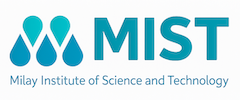The Field Service Technician Certificate (Microscopy Specialty) prepares students to service, maintain, and troubleshoot a wide range of optical and digital microscopes used in biomedical laboratories, academic institutions, industrial facilities, and research environments.
Students will learn how to disassemble and clean optical systems, perform alignment and calibration procedures, identify and resolve common performance issues, and complete technical service documentation. The course emphasizes preventive maintenance, optical alignment, and repair techniques for compound, stereo, fluorescence, and inverted microscopes.
This program is ideal for individuals seeking entry-level positions as microscope service technicians, lab equipment maintenance specialists, or support technicians in clinical or research facilities.
Program Details:
- Total Clock Hours: 50–60 hours
- Program Duration: 3–4 weeks
- Delivery Format: Blended (Online + Hands-On Labs)
- Credential Awarded: Certificate of Completion
- Prerequisites: High school diploma or equivalent
Program Objectives:
By the end of this course, students will be able to:
- Identify key components and optical systems in various types of microscopes.
- Perform preventive maintenance including optical cleaning, lubrication, and alignment.
- Diagnose and correct common mechanical and optical faults.
- Calibrate illumination systems and adjust parfocality and image clarity.
- Follow best practices for contamination control and documentation.
- Complete service logs, diagnostic reports, and quality control checklists.
Curriculum Outline Summary:
| Module | Title | Clock Hours | Description |
|---|
| Module 1 | Introduction to Microscopy & Optical Systems | 10 hrs | Covers light path design, magnification, resolution, and types of microscopes (compound, stereo, fluorescence, inverted). |
| Module 2 | Microscope Components & Functional Diagnosis | 10 hrs | Study of eyepieces, objectives, condenser systems, illumination units, stages, and mechanical parts. |
| Module 3 | Preventive Maintenance & Cleaning Protocols | 10 hrs | Hands-on cleaning and disinfection procedures, including proper use of tools and supplies. |
| Module 4 | Optical Alignment & Calibration | 10–15 hrs | Adjusting Kohler illumination, parfocality, mechanical alignment, and digital camera interfaces. |
| Module 5 | Lab Practicum: Field Servicing Simulation | 10–15 hrs | Practice in disassembly/reassembly, component replacement, service documentation, and troubleshooting scenarios. |
| Capstone Project | Final Service Report & Technical Evaluation | 5 hrs | Simulated repair task and written service report submission. |
Course Materials:
- Textbook: Microscope Maintenance and Repair: A Troubleshooting Manual by Mortimer Abramowitz
- Student Workbook: Milay Institute’s Microscopy Service Technician Guidebook
- Lab Tools Provided: Lens cleaning kits, alignment targets, multiscale micrometer slides, disassembly tools, sample microscopes (analog & digital)
Optional:
- Externship Placement (Optional, 40 hrs):
Students may observe or assist in real-world lab or clinic microscope servicing to supplement hands-on lab instruction. Externship placements are not required for certificate completion but are strongly encouraged.
Job Outlook & Demand
The broader occupational category of installation, maintenance, and repair technicians is projected to grow about 5% from 2021 to 2031, adding over 300,000 new jobs per year
The related field of biological and clinical laboratory technicians—who often use and maintain microscope systems—has projected growth of 5–7% through 2033 Bureau of Labor Statistics.
Nationwide, there are increasing openings for microscope service technicians and field service engineers, especially in biotech, pharma, research labs, and universities.
Salary Estimates in the Bay Area
ZipRecruiter national average: $54,600/year; top-tier (~90th percentile) ~$80K/year
Bay Area hotspots:
San Francisco: $30.50/hr
San Jose: $30.77/hr
Career Attractiveness & Advantages
Rising Demand + Limited Competition
Specialized roles in microscope servicing are less common than generic lab tech positions.
Employers look for certified, hands-on technicians—your training fills that niche.
Accessible Entry with High Technical Payoff
No four-year degree required. Entry often begins with technical training, not extensive academic credentials.
With your specialization, trainees can exceed national average wages quickly.
Growing Industry Engines
Biotech, research institutions, diagnostic labs, and universities continue expanding lab facilities—driving ongoing technician hiring.
Replacement demand due to retirements also supports
Clear Upside Path
Technicians may progress to roles such as service engineers, calibration specialists, or equipment validation leads.
Some employers provide brand-specific certifications (e.g., Millipore) or cross-specialize with calibration, water systems, etc.
Resilience & Relevance
The healthcare and life sciences sectors are increasingly reliant on instrumentation—microscope systems require regular maintenance and technical support to ensure performance aians.
Opportunity to stack into other specialties or advancement.


